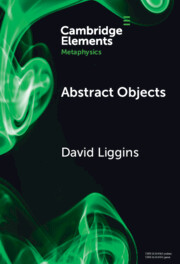Element contents
Abstract Objects
Published online by Cambridge University Press: 05 February 2024
Summary
- Type
- Element
- Information
- Series: Elements in MetaphysicsOnline ISBN: 9781009241373Publisher: Cambridge University PressPrint publication: 29 February 2024
References
- 1
- Cited by



